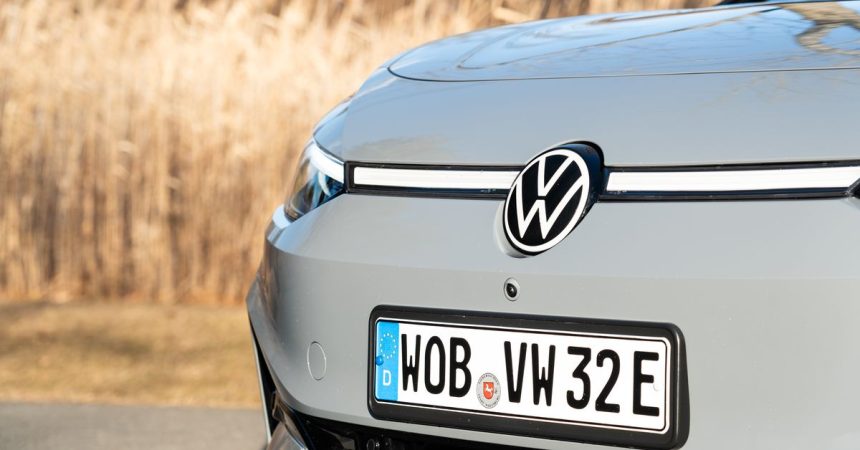A significant data vulnerability within Volkswagen’s software ecosystem exposed the location information of approximately 800,000 electric vehicles (EVs) across its various brands, including Volkswagen, Audi, Seat, and Skoda, leaving drivers susceptible to potential tracking and privacy breaches. The vulnerability, brought to light by a whistleblower and reported by German news magazine Der Spiegel and the European hacking association Chaos Computer Club, stemmed from flawed software developed by Cariad, Volkswagen’s software subsidiary. This flaw allowed unauthorized access to driver data stored on Amazon’s cloud servers, potentially compromising sensitive information such as vehicle activation times and, in some instances, even driver contact details including email addresses, phone numbers, and residential addresses.
The breadth of the data exposure is alarming. While the exact location precision varied across brands – with Volkswagen and Seat vehicle locations pinpointed to within ten centimeters, and Audi and Skoda locations within a broader 10-kilometer radius – the sheer volume of affected vehicles, nearly 800,000, highlights the magnitude of the security lapse. The potential for misuse of this data is substantial, ranging from targeted surveillance and stalking to more sophisticated attacks leveraging personal information gleaned from the exposed data. The vulnerability paints a stark picture of the security challenges facing the automotive industry as vehicles become increasingly connected and reliant on software and cloud services.
The data leak exposed not only location information but also provided a pathway to more personal data. While not all affected vehicles had their driver’s full personal information compromised, a subset of the exposed data did include names, contact details, and addresses linked to specific vehicles. This raises serious concerns about the potential for identity theft, targeted harassment, and other malicious activities that could leverage this sensitive information. The fact that this data was accessible via a vulnerability in Cariad’s software underlines the importance of robust security practices in the development and deployment of software for connected vehicles, particularly when it involves handling personal and location data.
Cariad’s response to the discovered vulnerability has been to address the technical flaw and assure customers that they need not take any action, claiming that highly sensitive data like passwords and payment details were not compromised. However, the extent to which driver data may have already been accessed before the vulnerability was patched remains unknown. This lack of transparency leaves lingering questions about the full impact of the data leak and the potential consequences for affected drivers. Furthermore, the incident underscores the critical need for comprehensive security audits and vulnerability assessments throughout the automotive software development lifecycle to prevent similar incidents in the future.
The Volkswagen data leak serves as a stark reminder of the growing cybersecurity risks associated with the increasing connectivity of modern vehicles. As cars become more reliant on software, cloud services, and data sharing, they also become more vulnerable to cyberattacks. This incident highlights the urgent need for the automotive industry to prioritize cybersecurity and implement robust security measures to protect driver data and ensure the safety and privacy of vehicle owners. The development of secure-by-design software and hardware, coupled with regular security testing and vulnerability patching, is essential to mitigate these risks and maintain public trust in connected vehicle technology.
Moving forward, the automotive industry must adopt a proactive approach to cybersecurity, encompassing not only robust technical solutions but also clear communication and transparency with customers regarding data security practices and potential vulnerabilities. This incident should serve as a catalyst for greater collaboration between automakers, software developers, and cybersecurity experts to establish industry-wide best practices and regulatory frameworks that prioritize data security and protect drivers from the increasing threat of cyberattacks in the connected car era. The Volkswagen data leak serves as a cautionary tale and a valuable learning opportunity for the industry as it navigates the complex landscape of vehicle connectivity and data security.



